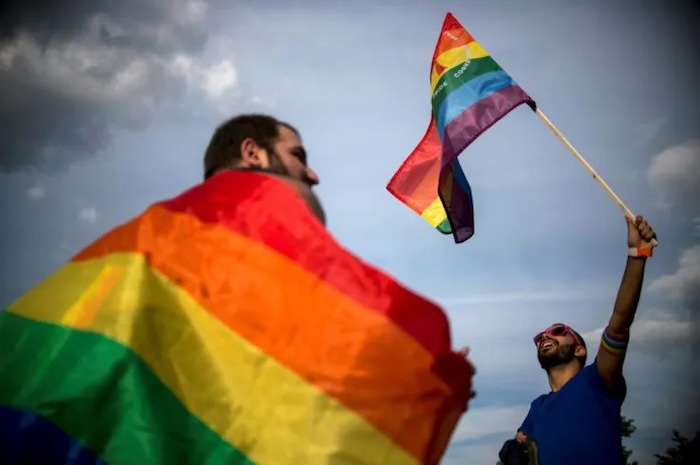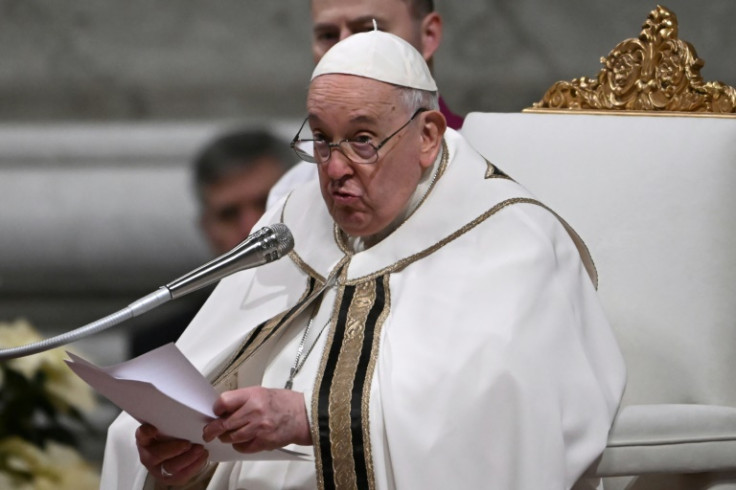— While religion and sexuality have long been a clashing issue, a new study now reveals shifting patterns in such values and attitudes across the U.S.

Sexuality among religious Latinos has long been a complex subject. While the place of same-sex marriage among major traditional religions has been contested over decades, a new survey shows that a number of religious Latino groups in the U.S., including Hispanic Catholics, support same-sex marriage and believe it should be allowed.
The study was conducted by the Public Religion Research Institute, or PRRI, throughout 2023. With more than 22,000 adults interviewed, the institute seeks to form a detailed profile of the demographic, religious and political characteristics of LGBTQ Americans.
The analysis measures Americans’ attitudes on LGTQ rights across all 50 states on three key politics: nondiscrimination protections, religiously based services refusals and same-sex marriage.
The study comes at a contrasting time for Latino religious followers.
On one hand, Latino evangelical support for Christian nationalism is on the rise, with about 55% of Hispanic Protestants saying they supported or sympathized with the movement in 2023, a 12% increase compared to the year prior, NBC News reports.
“I believe that God is going to do something very great with the Latino people in the United States,” Pastor Dionny Baez told his protestant congregation in Miami.
On the other hand, the share of Latinos who are religiously unaffiliated (describing themselves as atheist, agnostic or “nothing in particular”) now stands at 30%, up from 18% in 2013.

But when it comes to sexuality, the Hispanic profile in relation to religion and sexuality becomes more nuanced, according to PRRI.
In the U.S., roughly one in ten Americans identified as part of the LGBTQ community. Of this number, one in five are Hispanic (20%) the second largest race in the country to identify as part of this community.
Despite these numbers, support for LGBTQ people varied widely depending on the religion.
The lowest levels of support for nondiscrimination protections are from Hispanic Protestants (61%), followed by white evangelical Protestants and Muslims (56%).
Hispanic Catholics generally support such laws, but they saw one of the most dramatic declines between 2022 and 2023, decreasing 8 points (from 83% to 75%).
When it comes to same-sex marriage, a similar pattern emerges. While strong majorities of Christian nationalism Rejecters and Skeptics are in favor of allowing gay and lesbian couples the right to marry legally, most of those who are sympathizers and adherents of the movement oppose it.
89% of Hispanic Christian nationalism Rejecters favor same-sex marriage, followed by 70% of Hispanic Christian nationalism Skeptics who think similarly.
On the opposite end of the spectrum, 55% of Hispanic Christian nationalism sympathizers oppose allowing same-sex marriage, compared to 75% of adherents who think the same.
Catholics have long opposed same-sex marriage, but lately there have been factions seeking to present a more open stance. One of them is spearheaded by none other than Pope Francis, who back in December formally approved letting Catholic priests bless same-sex couples under certain circumstances.
While the Pope stressed that blessings in question must not be tied to any specific Catholic celebration or religious service and should not be conferred at the same time as a civil union ceremony, he also requested for such blessings to not be denied, insisting that people seeking a relationship with God and looking for his mercy shouldn’t be hold up to an impossible standard to receive it.
“There is no intention to legitimize anything, but rather to open one’s life to God, to ask for his help to live better, and also to invoke the Holy Spirit so that the values of the Gospel may be lived with greater faithfulness,” he said.
Complete Article ↪HERE↩!
